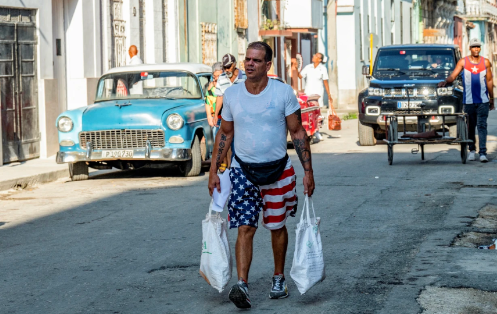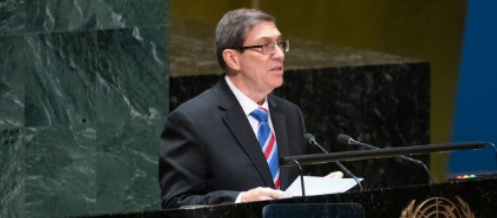

On Feb. 3, 1962, President John F. Kennedy imposed an embargo on Cuba that is still upheld to this day. The economic strain imposed by the embargo has led Cuban officials to urge the United States to lift the sanctions placed on the country.
The embargo on Cuba banned the island from being able to participate in U.S. markets. With Cuba being an island, the country depends on trade to survive. According to the Washington Office on Latin America (WOLA) article “Understanding failure of the U.S. Cuba embargo”, an estimate by the Cuban government found that the embargo has cost Cuba close to $144 billion.
The economic strain on the country has made it an undesirable place to live and visit. According to a UN news article “General assembly votes overwhelmingly against U.S. Cuba embargo”, Cuban foreign minister Bruno Rodríguez Parrilla states that families lack goods, there are long queues, excessively high prices, and the government makes great efforts to feed its people.
As people realize the situation in Cuba isn’t getting better, more people are leaving the country in hopes of finding a better home even if it’s not in the United States. According to the NBC News article “Cuba officials urge U.S. lift sanctions to stem migration from the Caribbean island,” there were 142,352 Customs and Border Protection encounters with Cubans from October 2021 to September 2022.
As more people leave Cuba their working population will continue to shrink. The increased absence of workers will hurt many Cuban businesses, further contributing to the deteriorating state of the country.
There are other factors that are pushing people out of Cuba. Factors such as crackdowns on protesters increases in Cuban political repression and censorship, and less reliable financial support from Russia are all major contributors to pushing people away from the country.
As a result of the economic strain from one of the longest-enduring embargos in history, according to UN News, the UN voted to end the embargo on Nov. 2. The vote was overwhelmingly opposed to the embargo, with 187 out of 190 countries in favor of ending the embargo. The only countries in favor of the embargo were the United States and Israel, with Ukraine abstaining from the vote. The vote will not immediately change the state of Cuba and it may still affect the lives of Cuban-Americans and their families in Cuba.






